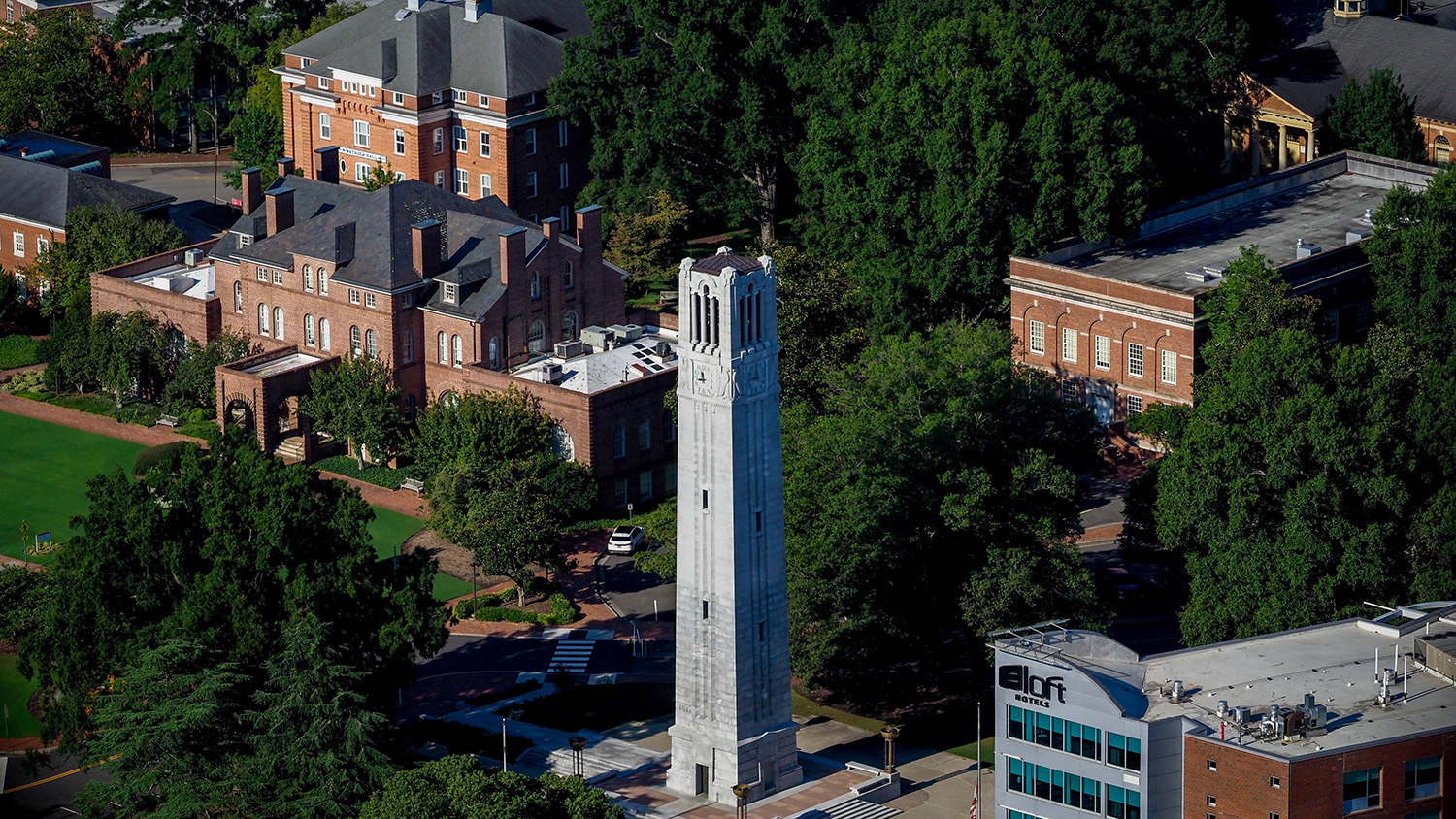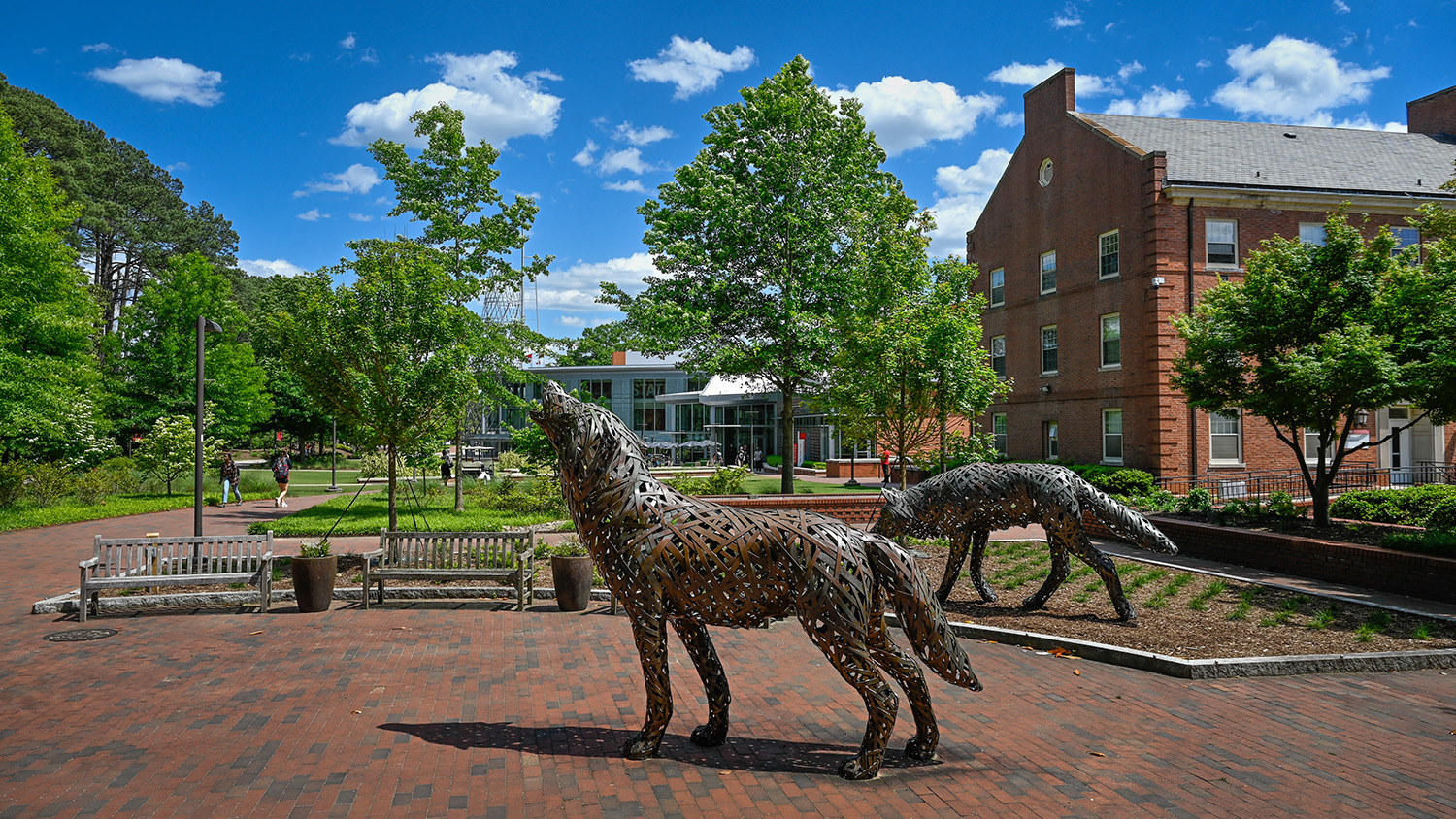Remembering Clark, Pioneer of Inclusion
Dr. Lawrence (Larry) Clark, longtime faculty member and administrator, was a driving force behind campus changes that helped African American and female students thrive at NC State.
Former chancellor Larry Monteith, a department head in the College of Engineering in the mid-1970s, remembers the challenges.
“Larry was sort of the spark plug,” Monteith says. “He stepped in and helped develop that environment. …He was right there at the front of that charge.”

Clark died Jan. 23 at his home in Raleigh. He was 77.
Monteith says Clark was a pioneer in his roles as math professor, associate provost and coordinator of the university’s affirmative action plan.
Clark spread that diversity by nurturing students and reaching them on a personal level. “I think he was really energized by the contact he had with students,” says Joanne Woodard, vice provost for institutional equity and diversity. “He never lost that. You see that in the programs he created. Those were created to foster their learning and to make sure they were armed and ready when they left NC State.”
Clark came to NC State in 1974 as a professor of mathematics who had taught at Virginia State College, Norfolk State College and Florida State University. He served as associate provost and a full-time professor in the College of Education.
As a catalyst for inclusion on campus, Clark was what the African American Cultural Center (AACC) calls a “founding father” for programs and initiatives centered around African-American advancement on campus. He worked diligently to found the AACC. He started the African American Symposium, a summer orientation program featuring perspectives from African-American faculty, staff and students. He also established the University-Community Brotherhood Dinner, which brought together leaders of NC State, Shaw University and Saint Augustine’s College.
One of Clark’s prized projects was an annual trip to West Africa he would take with students, Woodard says. The first trip happened in 1989 and was the brainchild of Clark and Augustus Witherspoon. Clark enjoyed using the trip to teach the students about themselves.
“I think he wanted people to have a better sense of, as we say, ‘from whence they came,’” Woodard says. “He wanted them to see they were from a prosperous people still thriving. It encouraged them to be a part of their heritage.”
In the 1990s, the AACC started the Lawrence M. Clark Lecture Series to celebrate his legacy. The 2012 Clark Lecture on March 15 will pay a special tribute to him. The Black Alumni Society has honored Clark by voting to name the undergraduate scholarship it awards after him.
Clark also served as a leader on various committees, boards and commissions. He was active in many professional societies, including the American Association of College Teachers of Education and Alpha Phi Alpha Fraternity Inc.
He is survived by his wife, Irene Reynolds Clark, of Raleigh; his four children: Debra Clark Jones of Chapel Hill, Linda Parks of Raleigh, Lawrence M. Clark Jr. of Washington, D.C., and Sheila Stallings of Greensboro; and seven grandchildren.
- Categories:


